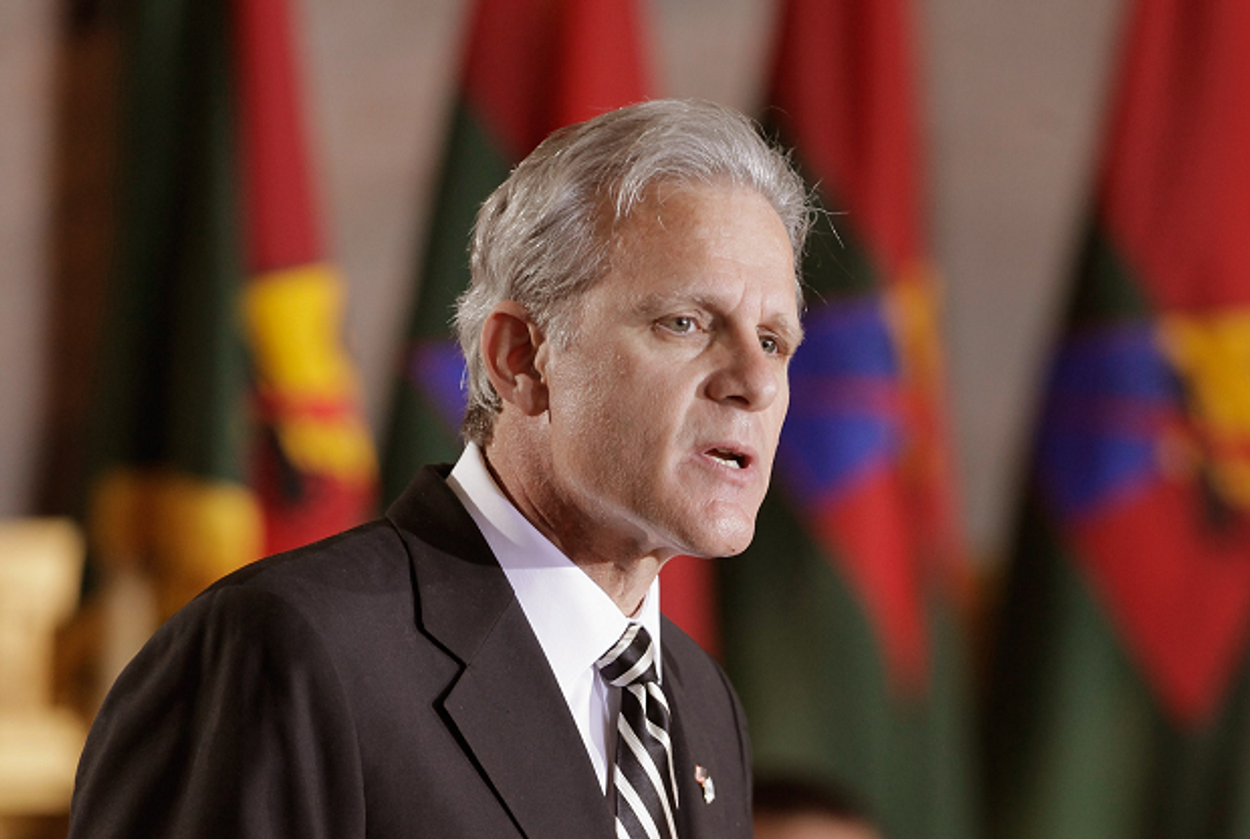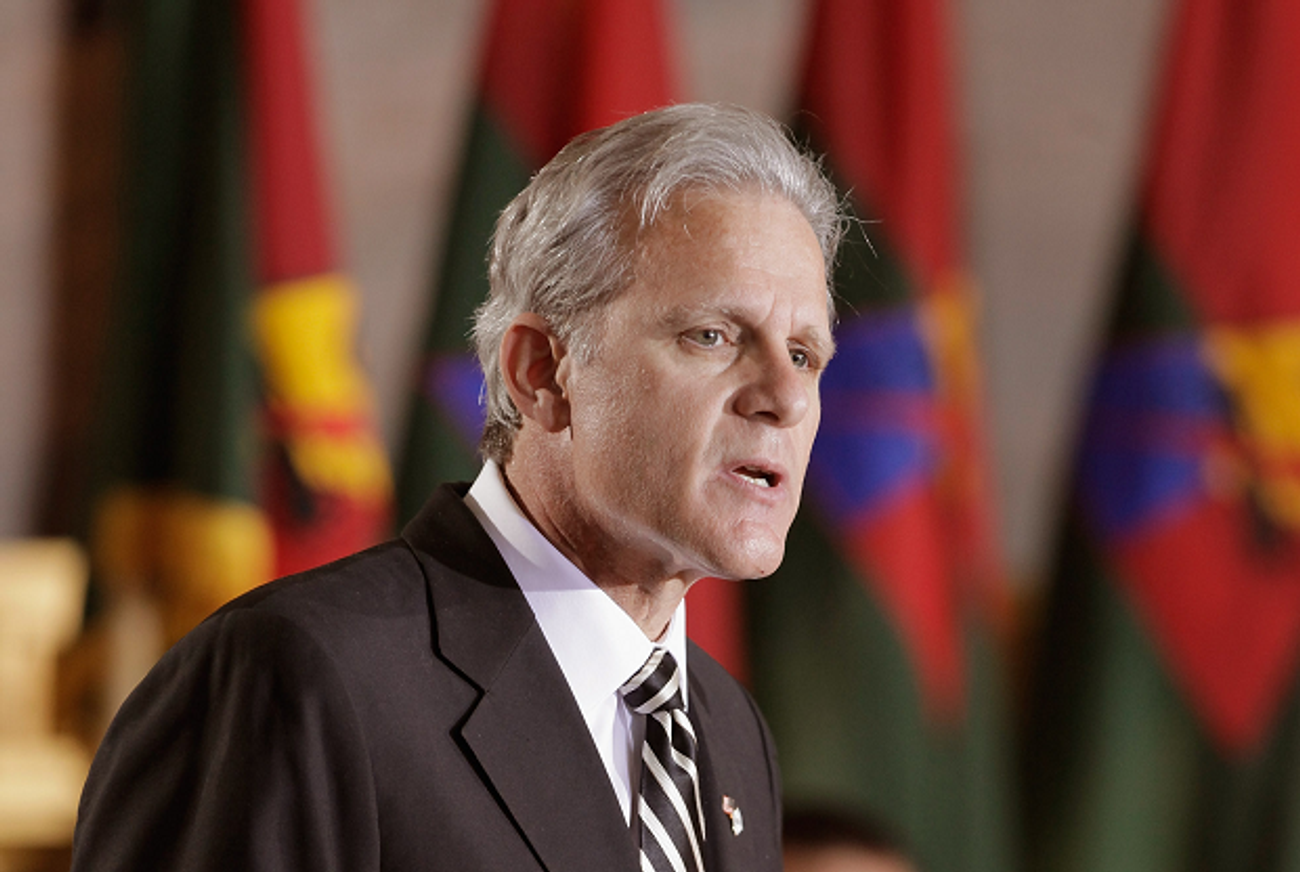Michael Oren: If Peace Talks Fail, Israel Should Withdraw from West Bank
Netanyahu’s former ambassador to the U.S. moves to his left




Michael Oren, Israel’s former ambassador to the United States, suggested over the weekend that Israel should withdraw unilaterally from the West Bank if the current peace talks fail. Oren raised the prospect in his CNN obituary for Prime Minister Ariel Sharon, who famously uprooted all of Israel’s settlements in Gaza as part of his disengagement plan. Reflecting on Sharon’s legacy, Oren argued that this model still held promise:
Today, as U.S. Secretary of State John Kerry pursues a peace agreement between Israel and the Palestinians, Sharon’s approach is once again being discussed. A growing number Israelis are asking, “What happens if the process fails?”
One solution could be a unilateral Israeli withdrawal from Palestinian population centers in the West Bank. As in the disengagement from Gaza, the United States would endorse this move, but unlike in Gaza, most Israeli settlements would remain within Israel, and Israeli troops would still patrol strategic borders. Of course, the preferable solution is two states for two peoples. But if that proves unattainable, then Israel can still end the occupation of the Palestinians, preserve its security, and perhaps lay new foundations for peace.
While this proposal might surprise those who have only known Oren as Benjamin Netanyahu’s handpicked envoy to the United States, those who followed Oren’s work prior to his diplomatic duties will be familiar with his thinking on this matter. Back in 2009, he labeled himself “the last of the standing unilateralists” while speaking at Georgetown. “I believe that the only alternative Israel has to save itself as a Jewish state–and let’s be frank about that, the Jewish state is predicated on having a Jewish majority–the only way we can do that is by unilaterally withdrawing our border and withdrawing our settlements in the West Bank,” he said.
Now that he is no longer tasked with representing the Israeli government’s positions, it appears Oren has begun voicing his own views–including those to the left of his former boss. Whether Netanyahu is inclined to follow Oren’s advice should the peace talks collapse remains to be seen, especially since many learn exactly the opposite lesson from Sharon’s Gaza gambit: that unilateral disengagement is a foolhardy policy which ultimately empowers Palestinian extremists.
“Sharon made one terrible mistake in Gaza,” writes Jeffrey Goldberg in Bloomberg View. “His mistake was not leaving… His mistake was leaving unilaterally. A negotiated withdrawal–and there were Palestinians with whom he could have negotiated such a withdrawal–could have extracted important concessions from Palestinians. Instead, radicals in Gaza were empowered by Sharon’s unilateralism. They believed, not entirely incorrectly, that their terrorism had paid off, forcing even a legendary warrior like Ariel Sharon to turn tail. The fallout from the withdrawal is well known: Hamas soon came to power and turned Gaza into a launching pad for missile attacks.”
Should the Kerry-brokered peace negotiations flounder, expect these two dueling narratives of Ariel Sharon’s legacy to come to the fore, as Israelis debate their next course of action.
Previous: Michael Oren Steps Down as Ambassador
Yair Rosenberg is a senior writer at Tablet. Subscribe to his newsletter, listen to his music, and follow him on Twitter and Facebook.